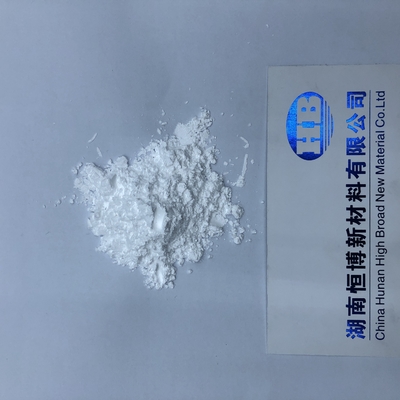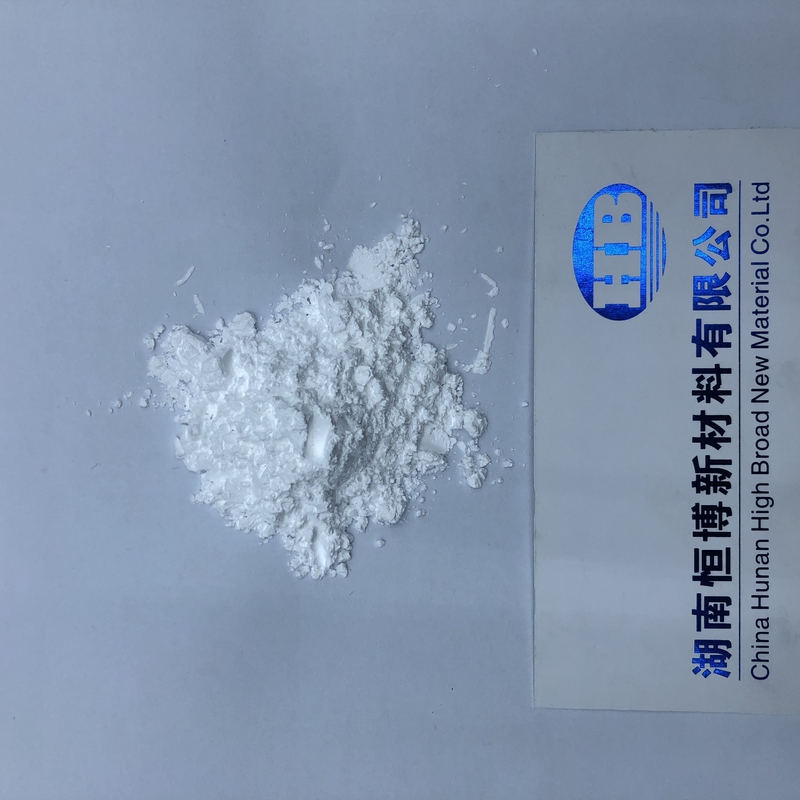Thorium Oxide ThO2 Micron Powder Purity 99.99% rare earth materials
Product Details:
| Place of Origin: | PRC |
| Brand Name: | HB |
| Certification: | ISO, GB |
| Model Number: | ThO2 |
Payment & Shipping Terms:
| Minimum Order Quantity: | 10kg |
|---|---|
| Price: | 500USD/kg |
| Delivery Time: | 14 work days |
| Payment Terms: | T/T |
| Supply Ability: | 1t/month |
|
Detail Information |
|||
| CAS: | 1314-20-1 | Mol. Formula: | ThO2 |
|---|---|---|---|
| Mol. Weight: | 264.04 | Assay: | 99.99% |
| Appearance (Colour): | White | Appearance (Form): | Powder |
| Melting Point: | 3390 °C | Boiling Point: | 4400 °C |
| Density: | 10.00 G/cm3 | Solubility In Water: | Insoluble |
| High Light: | Lu2O3 Micron Powder,Lu2O3 Micron Powder 99.99%,Thorium Oxide Micron Powder |
||
Product Description
Thorium Oxide (Lu2O3) Micron Powder, Purity: 99.99%
Thorium Oxide is a highly insoluble thermally stable Thorium source suitable for glass, optic and ceramic applications. Thorium Oxide is generally immediately available in most volumes. Ultra high purity and high purity compositions improve both optical quality and usefulness as scientific standards. Nanoscale elemental powders and suspensions, as alternative high surface area forms, may be considered. Thorium is highly valued in glass and ceramic production as a bright yellow pigment because of its optimum reflectance![]() at 560 nm. Oxide compounds are not conductive to electricity. However, certain perovskite structured oxides are electronically conductive finding application in the cathode of solid oxide fuel cells and oxygen generation systems. Rare Earth oxide compounds are basic anhydrides and can therefore react with acids and with strong reducing agents in redox reactions. They are compounds containing at least one oxygen anion and one metallic cation. They are typically insoluble in aqueous solutions (water) and extremely stable making them useful in ceramic structures as simple as producing clay bowls to advanced electronics and in light weight structural components in aerospace and electrochemical applications such as fuel cells in which they exhibit ionic conductivity.
at 560 nm. Oxide compounds are not conductive to electricity. However, certain perovskite structured oxides are electronically conductive finding application in the cathode of solid oxide fuel cells and oxygen generation systems. Rare Earth oxide compounds are basic anhydrides and can therefore react with acids and with strong reducing agents in redox reactions. They are compounds containing at least one oxygen anion and one metallic cation. They are typically insoluble in aqueous solutions (water) and extremely stable making them useful in ceramic structures as simple as producing clay bowls to advanced electronics and in light weight structural components in aerospace and electrochemical applications such as fuel cells in which they exhibit ionic conductivity.
Application:
- Nuclear fuels
Thorium dioxide (thoria) can be used in nuclear reactors as ceramic fuel pellets, typically contained in nuclear fuel rods clad with zirconium alloys. Thorium is not fissile (but is "fertile", breeding fissile uranium-233 under neutron bombardment); hence, it must be used as a nuclear reactor fuel in conjunction with fissile isotopes of either uranium or plutonium. This can be achieved by blending thorium with uranium or plutonium, or using it in its pure form in conjunction with separate fuel rods containing uranium or plutonium. Thorium dioxide offers advantages over conventional uranium dioxide fuel pellets, because of its higher thermal conductivity (lower operating temperature), considerably higher melting point, and chemical stability (does not oxidize in the presence of water/oxygen, unlike uranium dioxide).
Thorium dioxide can be turned into a nuclear fuel by breeding it into uranium-233 (see below and refer to the article on thorium for more information on this). The high thermal stability of thorium dioxide allows applications in flame spraying and high-temperature ceramics.
- Alloys
Thorium dioxide is used as a stabilizer in tungsten electrodes in TIG welding, electron tubes, and aircraft gas turbine engines. As an alloy, thoriated tungsten metal is not easily deformed because the high-fusion material thoria augments the high-temperature mechanical properties, and thorium helps stimulate the emission of electrons (thermions). It is the most popular oxide additive because of its low cost, but is being phased out in favor of non-radioactive elements such as cerium, lanthanum and zirconium.
Thoria dispersed nickel finds its applications in various high temperature operations like combustion engines because it is a good creep resistant material. It can also be used for hydrogen trapping.
- Catalysis
Thorium dioxide has almost no value as a commercial catalyst, but such applications have been well investigated. It is a catalyst in the Ruzicka large ring synthesis. Other applications that have been explored include petroleum cracking, conversion of ammonia to nitric acid and preparation of sulfuric acid.
- Radiocontrast agents
Thorium dioxide was the primary ingredient in Thorotrast, a once-common radiocontrast agent used for cerebral angiography, however, it causes a rare form of cancer (hepatic angiosarcoma) many years after administration. This use was replaced with injectable iodine or ingestable barium sulfate suspension as standard X-ray contrast agents.
- Lamp mantles
Another major use in the past was in gas mantle of lanterns developed by Carl Auer von Welsbach in 1890, which are composed of 99% ThO2 and 1% cerium(IV) oxide. Even as late as the 1980s it was estimated that about half of all ThO2 produced (several hundred tonnes per year) was used for this purpose. Some mantles still use thorium, but yttrium oxide (or sometimes zirconium oxide) is used increasingly as a replacement.
- Glass manufacture
When added to glass, thorium dioxide helps increase its refractive index and decrease dispersion. Such glass finds application in high-quality lenses for cameras and scientific instruments. The radiation from these lenses can darken them and turn them yellow over a period of years and degrade film, but the health risks are minimal. Yellowed lenses may be restored to their original colourless state by lengthy exposure to intense ultraviolet radiation. Thorium dioxide has since been replaced by rare-earth oxides such as lanthanum oxide in almost all modern high-index glasses, as they provide similar effects and are not radioactive.
70 Chezhan North Road,Changsha, China 410100
Tel:+86-731-85713359 Fax:+86-731-85716569
Wechat/Whatsapp: +8618507315452
chris@hbnewmaterial.com chrishuang@vip.qq.com





